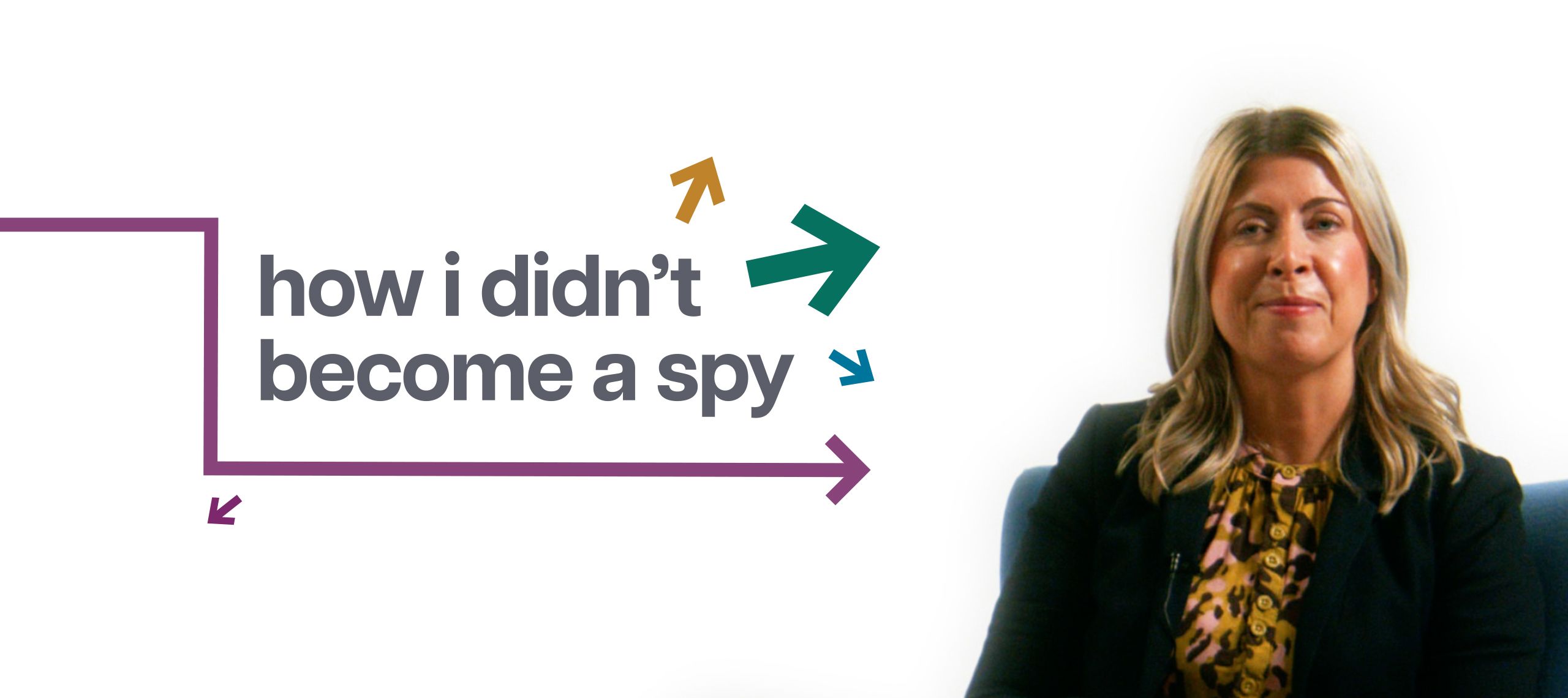
Research Journeys: How I didn't become a spy
I became the missing person, the missing link that I never had.
After finishing a law degree but not wanting to be a lawyer, Marianne felt a little lost. But she isn’t the only one. Navigating employment and careers can often feel overwhelming.
After some time in the industry as a recruiter, she now works on preparing students for the world of work, making sure they have the opportunities she didn’t have when she left university.
Marianne is a Senior Teaching Fellow and has recently been appointed to a curriculum development role within the Leeds University Business School.
Read more about Marianne and her research.
Transcript
[Marianne is sitting in front of a white background speaking directly to camera.]
Marianne: Seven seconds. That’s all it takes for a recruiter to decide if they're going to read the rest of your CV, or indeed not much longer for an interview panel to decide if you're right for the job. And that's it for humans involved. Many recruitment processes are automated by AI.
So, the graduate jobs market can be tough. And I found this out for myself many years ago now, when I was a law graduate not wanting to be a lawyer. In fact, I didn't know what I wanted to be. I didn't really know what I was good at, and I didn't really know what skills I had. And I thought the skills that I had from the program were only going to be useful to those people who wanted to be lawyers. Or so I thought.
I attended lots of interviews, and they would ask me about a time I performed a particular skill. Or they would ask about my biggest strength, often followed by my greatest weakness. And it was really quite a challenging time and I had genuinely thought that the degree would be enough.
But I wasn't the only one experiencing this. A lot of my peers and friends were having similar experiences and applying to jobs and having many rejections. In fact, I remember a particular evening at the pub where we were talking about this and deciding what we were going to do the next day. And I remained quite quiet, a little sheepish, because I knew exactly what I was going to do the next day.
I had been invited to an interview with the British government for a job in an MI5. It had explicitly said on the invite not to tell anyone you were going. So indeed, I didn't. And the next morning I woke up, left the house, and got on the train and arrived at said building, only to be greeted by my friend from the pub who had indeed applied for the same job and was there for the same assessment.
So having laughed about our experience, we congratulated ourselves on the fact that we hadn't told anybody, but we were unsuccessful in getting through to the next round. Or at least I think he was...
But all this was a really important life lesson in reflection and rejection and built my grit and determination to understand that the application process was going to be difficult. But what I needed to do was pull out more of the skills and experiences that I'd acquired through my program and elsewhere to really demonstrate to an employer how successful I could be in the job.
So, this realisation and applying for so many jobs meant that I actually got quite good at it. And just like busses, two job offers came along at once. I chose a job in recruitment, which turned out to be a wise choice.
So I spent the next seven or eight years working in recruitment, interviewing and assessing candidates and really developing my knowledge on what recruiters wanted from a successful hire. I then moved into an in-house recruitment role with more of a human resource focus. And during that time, I undertook my human resource management masters alongside that particular job role.
During that decade, higher education had moved on significantly in terms of the importance that was being given to graduate outcomes and graduate destinations. And the term employability had started to flood to university strategies as recruiters fed back that graduates didn't have the skills that they needed.
And about this time, Leeds University Business School advertised for a role; a professional development tutor. And this role would be to work with students to embed professional skills into the program and ultimately develop their employability. This was the right job for me. And so it was. I became the missing person. The missing link that I never had. The person to embed skills into the program to help students experience them and practice them, develop them, and reflect on them, and importantly, recognise and better articulate them to potential recruiters.
So, I spend much of my time working with students directly to get them to understand the skills that they're acquiring, because I get it. I understand what's required of the students coming from a place of experience and also having been a recruiter. And it turns out many of the students do have the skills that recruiters are looking for. They just needed that support to recognise and navigate those skills and of course, recognise their transferable nature.
So more recently, I've moved into a development role, which is to support a university strategy to look at embedding skills across all programs in the university.
So, it turns out the right job for me wasn't becoming a spy, but in fact was supporting others to develop the skills they needed to secure the right job for them.